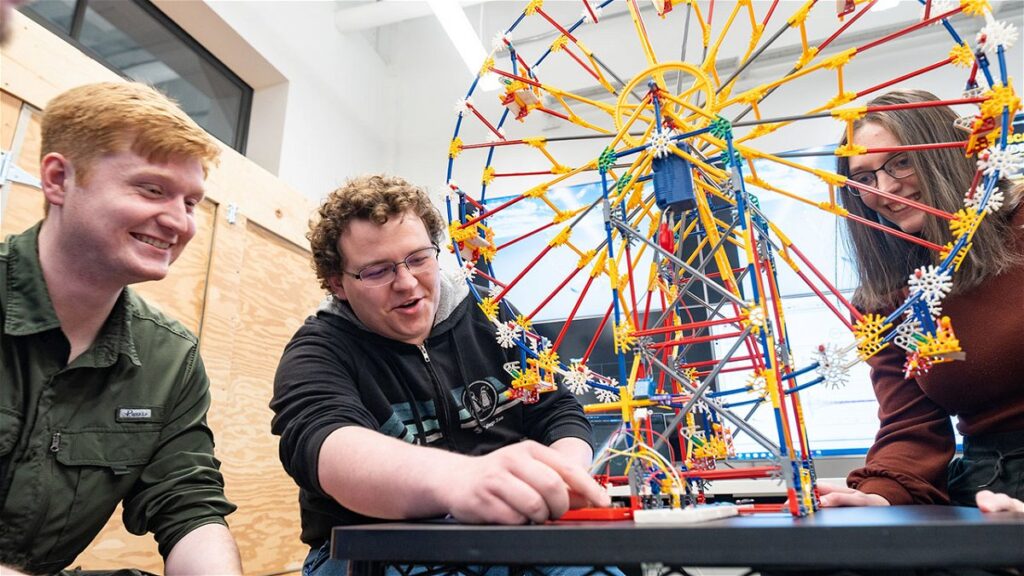MOSCOW, ID (KIFI) — The University of Idaho College of Engineering will recognize the state's first undergraduate class of cybersecurity professionals who will go on to jobs in Idaho and across the nation.
Cybersecurity undergraduates who earned Idaho's first cybersecurity bachelor's degree, established in 2020, include Sean Devine of Pocatello, Oscar Michua Zarate of Caldwell, Matthew Neal of Idaho Falls, and Louisville's Mr. Hunter Squires will be recognized at the Spring Commencement Ceremony on Saturday, May 11th. Moscow campus.
These students are a growing number of graduates of U of I's cybersecurity master's program. U of I launched his master's program in 2021, one of his first in the nation.
“The University of Idaho is a leader in advanced cybersecurity education and training at the state and federal level,” said University of Idaho President Scott Green. “We are thrilled to celebrate Idaho’s first cybersecurity undergraduate students and more than 30 years of cybersecurity education at IU.”
Devine started U of I’s undergraduate cybersecurity program in 2020 and accepted a position as a cybersecurity engineer at the Idaho National Laboratory after graduation.
“Cybersecurity at the University of Idaho is about secure code development,” he said. “We are not just identifying cyberattacks as they occur; we are designing new critical energy, water, transportation, and health systems to be inherently secure and future-proof. Make it something.”
Devine is on track to graduate debt-free as a CyberCorp Service Scholarship (SFS) student. For more than 20 years, the U of I's Center for Secure and Dependable Systems (CSDS) has maintained a position in the National Science Foundation program, with more than $20 million in total funding to train students to work at the highest levels of government. I have secured it. Since 2001, more than 110 students have graduated from the program.
Funding will cover all tuition and degree-related costs for SFS program participants. Program participants will be assigned to faculty-led research projects investigating cybersecurity and cyberdefense issues.
“The SFS program is an important part of U of I’s continued role in meeting the critical need for cybersecurity professionals in Idaho and across the nation,” said U of I Professor and Chair of the Department of Computer Science. Terrence Soule said. “We worked with industry to identify growing workforce demands in the 1990s and have provided national influence in curriculum development and practical research ever since.”
As a student, Mr. Squires interned at the Schweitzer Institute for Engineering Research (SEL) and will continue in his role as a leader in global power system protection.
“My favorite thing about studying cybersecurity in college is the way the classes are taught,” Squires said. “We talk about business practices, compliance, and how to handle data, but faculty also focus on technical controls, how to enforce safety protocols such as password complexity, and the social aspects of it.” You get to really understand how systems work at scale and how computers work.”
Through partnerships with leading industries such as SEL, Idaho National Laboratory, Idaho Power, Power Engineers, and Avista, the U of I College of Engineering has developed a network of state-of-the-art equipment, laboratories, and resources that are directly accessible to students. to laboratory exploration and research aimed at enhancing cybersecurity and developing inherently cyber-secure industrial control systems.
Students receive one-on-one instruction from nationally and internationally recognized expert faculty with PhDs in the field of cybersecurity and expertise in power engineering, information assurance, industrial control systems, and transportation.
“Integrating the core principles of engineering and cybersecurity is an important part of the programs offered by the University of Idaho College of Engineering,” said Susannah Long, dean of the University of Idaho College of Engineering. “This will prepare our graduates to immediately address the challenges facing Idaho and our domestic industry.”
As one of the National Security Agency's first seven national academic research centers in cyber defense, U of I has been a leader in advanced cybersecurity education and research for more than 30 years.
CSDS was also recently named director of the academic support center representing community colleges and universities across the country in the newly launched Department of Defense Cybersecurity University Consortium (UC2).
Mandated by Congress through the National Defense Authorization Act of 2020, UC2 exists to facilitate two-way communication between the U.S. Secretary of Defense and the nation's academic community.


